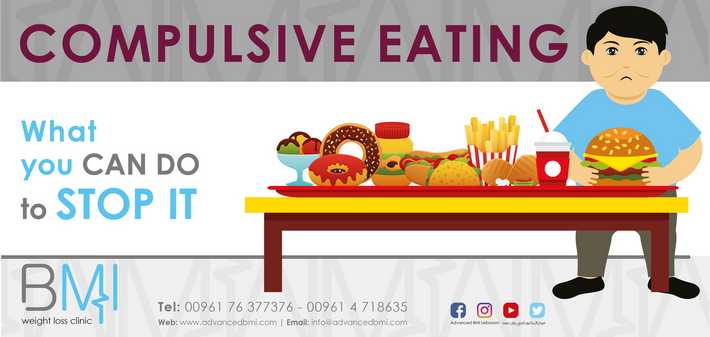Compulsive eating and comfort food.
If you do, you are definitely in good company. Many people usually have comfort food that they like to eat when they are trying to feel better. It does not matter whether they’re heartbroken, or they’ve just had a crappy day at work. Some people eat to cope with stress or unhappy situations, other people just eat out of habit.
People also use food to entertain and celebrate special events or even a gathering of friends. In all these cases, food is consumed not to alleviate hunger but for social and emotional reasons.
Most emotional eaters tend to develop unhealthy relationships with food. They will often find themselves eating more and more sweet or comforting foods. This results in more calorie intake than the body requires.
More often than not, emotional eaters become overweight or obese in the long run.
Weight loss surgery limits the size of the stomach and restricts the amount of food portions a patient can eat at any one time. However, bariatric surgery does not solve the need to eat to cope with stressful factors and situations.
Because of this, before having bariatric surgery done, it is very important to sit down and evaluate whether you are an emotional eater or not. If you find that you tend to eat more whenever you are faced with a stressful situation, you should examine you try to recognize what sets you off.
This way, you can differentiate the need to eat because you feel hungry and when you shouldn’t eat.
If you don’t differentiate whether your body is craving comfort food to cope with or to celebrate a situation and when you are craving food because you are actually hungry; you will find yourself eating more than you should. In the end, you won’t fully benefit from your bariatric surgical procedure.
Below are some of the things you can do in order to overcome compulsive or emotional eating behavior.
Find out When, Where and why do you eat?
List down all the possible reasons why you normally eat in order to help you figure out why you have an unhealthy relationship with food. It is also important to know where and how you normally eat.
Do you normally eat in bed? Do you often store snacks and other comfort foods in the house? Do you mostly eat while watching Television or do you sit and eat?
Once you recognize why, where and how you eat, you can be able to come up with a plan that will help you beat this unhealthy habit.
What can you do to overcome compulsive eating?
To be honest, it is not easy to stop unhealthy eating habits. This is because unlike alcohol or cigarettes that you can decide to cut out of your life, human beings are designed to eat in order to survive. Because we associate food with survival, we cannot simply cut it out and move on without thinking twice.
But again, there is nothing easy that is worth doing.
If you are considering having a weight loss surgery and have discovered that you have developed an unhealthy emotional reliance on food, below are some of the things you can do in order to gradually stop this habit before your surgery.
- You keep snacks to nibble on in bed
You can stop this habit gradually by replacing the snacks with healthy smoothies or beverages like green tea, ginger or lemon tea.
- You mostly eat when bored or while watching TV
Cut down on your TV time and read a book or go for a walk. The goal is to get active and keep busy so that you spend less time watching TV and gorging on popcorn. If you must watch TV, replace the snacks with something healthier.
- You tend to eat a lot during celebratory events and social gatherings.
If you find that you usually eat to reward yourself or during celebratory events, reward yourself some other way. You can book a massage or go get your nails manicured or even go out shopping.
If you happen to eat a lot during social events, let your family and friends know that you are considering weight loss surgery. This way, they can be able to support you better. When they invite you for events, they can include a healthy side dish that is not packed with calories for you. You can also ask to bring a healthy side dish yourself and forget about compulsive eating.
- You eat Comfort Foods When You are Sad or Stressed
When you are sad or stressed, try not to spend a lot of time in the bedroom. You can go for a walk, run or just head to a park to avoid going back to eating ice cream and chocolate. You can also try to replace all comfort foods with more greens, groceries and fruit.
Instead of compulsive eating, turn on the music and clean out your bedroom or get some laundry done. Just get busy. If you feel you need to eat something, grab an apple or an orange.
If you are considering bariatric surgery in Lebanon or need more information on weight loss surgery, obesity, compulsive eating or any other weight loss issue, contact us today.
At advanced BMI Lebanon, we are always happy to give you all the information you need to start you off on your path to a lighter more confident you and a healthier life.









